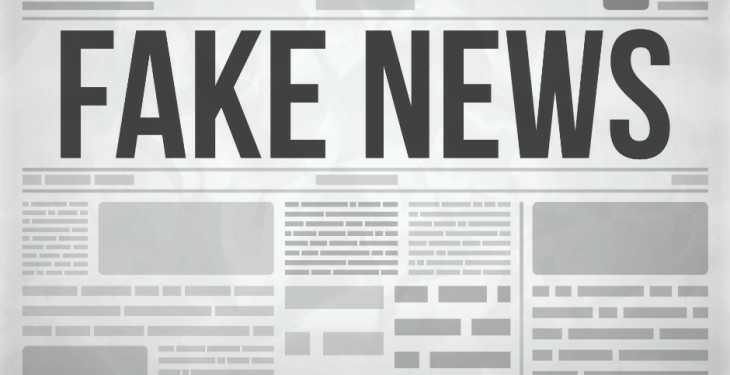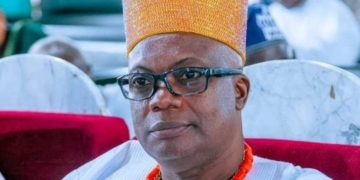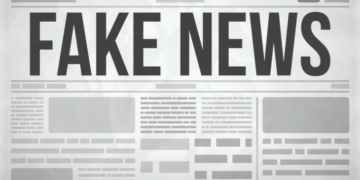The growing impact of fake news on our society seems to be on the increase.
While it is inimical to national security; it is hostile to business owners, public office holders and by a large extent,our economical growth as a nation.
Just like terrorists survive on propaganda to get attention and spread their ideology as well as to create fear and the impression that they were “untouchable, invincible, or have the capacity that they do not possess. Nigerians must be very careful not to fall to their antics by condemning any actions and propaganda that tends to destroy the fabrics of our society.
Mobilizing and manipulating information was a feature of history long before modern journalism established standards that define news as a genre based on particular rules of integrity. Hunt Alcott and Matthew Gentzkow define such manipulation known much more pronouncedly today as fake news to be news that is intentionally and verifiably false and intended to mislead the public. Their definition of fake news includes intentionally fabricated news. It also includes many articles that originate on satirical websites but could be misunderstood as factual, especially when viewed in isolation on Twitter or Facebook feeds.
According to Julie Mastrine, Fake news most commonly refers to journalism or information that either deliberately or unintentionally misleads people and distorts reality by spreading false information, hoaxes, propaganda, or misrepresentation of facts. It can be used as a propaganda or marketing tactic, as a way to fairly or unfairly discredit ideological opponents, or as a way to increase revenue via online engagement metrics such as clicks, views, comments, likes, and shares.
In summary, fake news is a type of “yellow journalism” or propaganda that consists of deliberate misinformation or hoaxes spread via traditional print and broadcast news media or online social media. Fake news is written and published with the intent to mislead to gain financially or politically, often with sensationalist, exaggerated, or patently false headlines that grab attention, and that’s what some of our journalist and commando or faceless media houses are threading upon in Nigeria today.
Intentionally misleading and deceptive fake news is different from obvious satire or parody, which is intended to humour rather than mislead its audience. Fake news often employs eye-catching headlines or entirely fabricated news stories to increase readership, online sharing, and Internet click revenue. In the latter case, it is similar to sensational online “click bait” headlines and relies on advertising revenue generated from this activity, regardless of the veracity of the published stories. Fake news also undermines serious media coverage and makes it more difficult for journalists to cover important news stories.”
Fake news, over the years, has proven to be an undermining factor in countering terrorism engagement as well as a sponsor and promoter of acts of terror in Nigeria today. It is an anti-social vice that impacts negatively on National development as such calls for the need for it to be given serious attention.
While we seek to explore the threats of fake news to the counter-terrorism and insurgency efforts of the Nigerian state and the role of civil societies and media organizations to tackle the menace of fake news, we must put all hands on deck and ensure the right thing is done to filter the unprofessional bad eggs in our media sphere before it destroys our democracy,unity and economy.
It’s no more news that fake news and other types of false information can take on different faces, they also have had significant impacts because information shapes world views, decisions of individual and national implications are based on information. Ideas about people or a situation are formed based on information too.
The House of common in 2019 has quoted how fake news poses a grave threat to our national democracy, however, in the current era of widespread fake news in the country, it is increasingly difficult for the public to clarify reality concerning issues relevant to its decision.
Furthermore, a state of affairs in which different groups in a society increasingly dispute the facts detracts from the ability to exchange opinions and conduct a sound public and political discussion on issues that must be decided. The absence of legitimate public debate impedes constructive processes of policymaking, increases the lack of trust between disputing groups, aggravates social polarization, and is liable to culminate in violence.
To make sound national security decisions, participants in relevant discussions must have a good grasp of the strategic, operative, and tactical situations. They must understand what is happening, describe the problems on the agenda, consider possible options for action, and in the end, make decisions that directly affect the lives of citizens. Errors in understanding reality are liable to result in wrong decisions in policy design, operational planning, and force build-up.
While the Nigerian media is expected to report and analyse any matter of interest to the public, they are also liable with striking the right balance between informing the public without unnecessarily stoking fear or giving disproportionate publicity and attention that’s unproven that may later turn out to be false and more difficult to douse,should it turn out to be false, because of the rapid spread of fake news.
We urge the general public to be more meticulous in their action on social media,while we urge the security formations to take responsibility for misinformation, which has sowed confusion among it’s citizens, for if we have had a scapegoat cooling off behind bars, most of the half baked journalism we practice in Nigeria today would be improved by now.
Civil Society Organisations (CSOs) could mount sustainable pressure on broadcast media that get easily distracted by shiny ratings, which usually come with the spread of fake news, to desist from promoting contents that are fake and harmful to national development.
CSOs should continually encourage reliable broadcast media to regularly get factual information out, especially those that are associated with national security, even if it feels like it is falling on deaf ears amid widespread fake news.
On the individual level, CSO is saddled with the responsibility to encourage the populace online and offline that they should never tweet, re-tweet, or share stories from unknown sources.
Such stories should be treated as if they contain an information virus deadlier than malware because they do.
The steady growth of fake news has eroded the trust that people had on journalism and media-related channels.
Now, people are questioning whether the reports they get via other channels such as social media are correct. Civil Societies have a role to play in setting the record straight when it comes to the battle against fake news.
Civil Societies are important elements of national development; their activities could potentially promote national security and increase patriotism if adequately exploited. CSOs in Nigeria can be instrumental in the fight against fake news by acting as the educationist of the populace by engaging communities via social media and town hall meetings before it’s too late.
The people should also be taught how to use and rely upon vital fact-checking organizations even as they also cite sources as to what they post or tweet, making sure those sources are reliable. CSOs in Nigeria, could be instrumental in limiting the spread of fake news that aggravate terror activities by raising the populace awareness towards boycotting news media and its relatable sponsors.
This will most likely influence their tendency to publish or share fake news,as we have seen unreliable news from them over time as they have mostly concentrated on cheap blackmails.
Mass complaints to Facebook, Twitter, Google, or other social media, if insufficient in numbers, will affect and make giant media nervous. CSOs should occasionally remind Broadcast Media to design training modules for the training of future journalists to combat fake news by respecting tenets of journalism. Students should learn how and when it may be appropriate to use anonymous sources, how to investigate issues including political biases and the effect of conservative news on mainstream media.
In conclusion
The fight against fake news should be seen as terrorism and is not the privy of the Nigerian government alone. While the government, to a large extent, can curtail the threats and harrasment of it’s citizens via fake news, their instrument of spreading propaganda, which includes fake media hiuses should be tamed.
There is a need for civil societies and Media outlets to view the spread of fake news as Media terrorism that poses a threat to m and Media outlets in Nigeria to stand against such campaign.






Discussion about this post